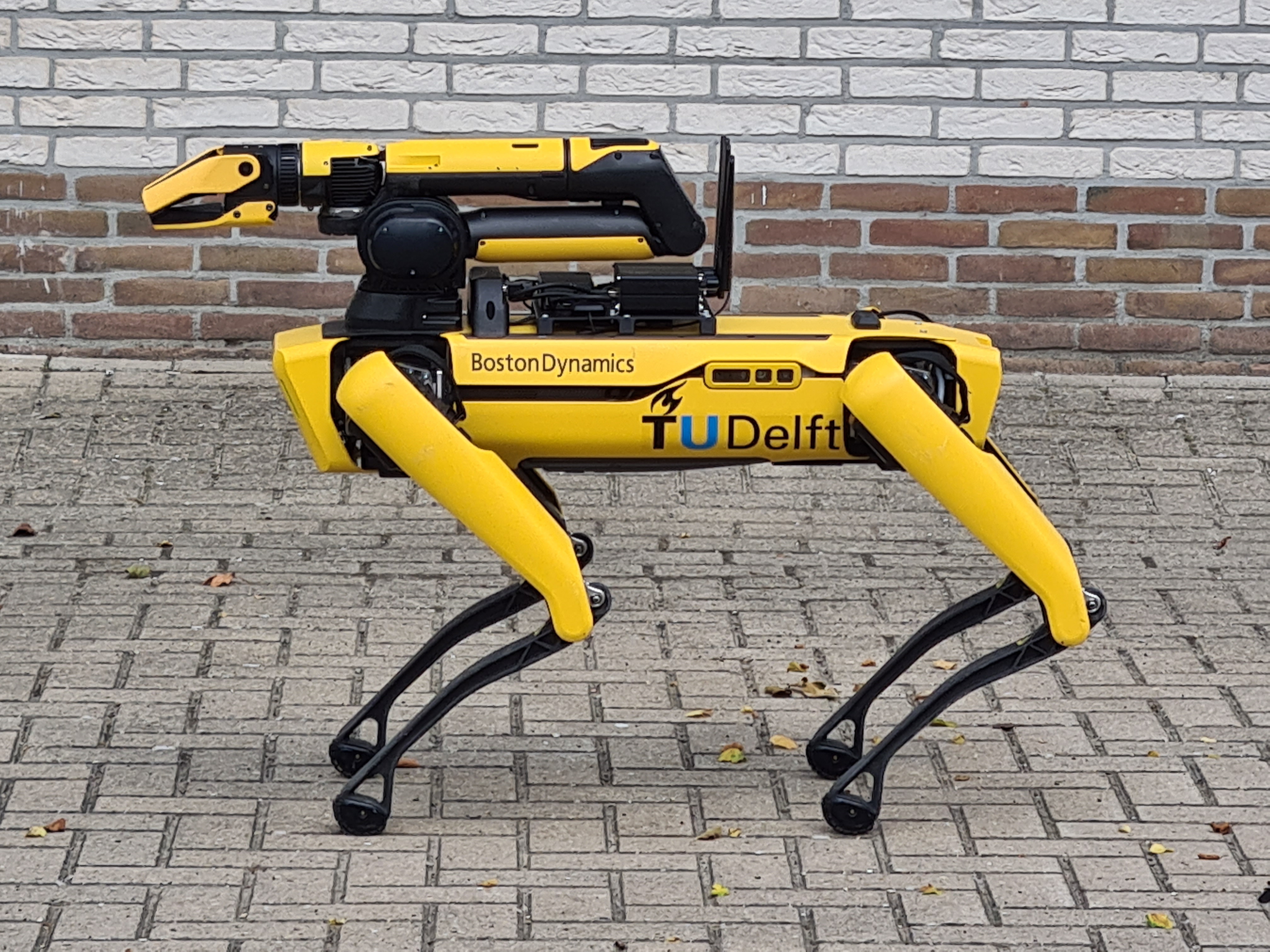OpenBots: Open world autonomy of robots by common sense AI

People
Funding
This project has received funding from the Dutch Research Council NWO-AES, as well as TNO and the Royal Netherlands Marechaussee (KMar).
About the Project
Robots are already an important asset in the industrial domain, for example in car manufacturing and in order picking, where they operate successfully in a static, man-made environment that is completely predictable. Unfortunately, the operability of existing robotic systems stalls catastrophically when significant or unpredictable events occur, as it breaks the “closed world” assumption under which they operate. In order to operate in the “open world”, where such unpredictable and unknown events occur often, these robots should improve their autonomy, i.e., not relying on the pre-programmed assessment of observations nor the rule-based scheduling of actions that are both allowed in the known and predictable situations of a “closed world”. This creates new technological challenges, as the situation under which these robots need to operate becomes uncertain, unpredictable and oftentimes unknown. Therefore, the major research challenge addressed in this project is to turn robots from automated systems that operate in static and predictable environments into autonomous systems that operate in the real, open world.
To study this research challenge, the OpenBots project aims to enable an autonomous robot with the ability to operate in an open world by leveraging common sense and artificial intelligence. In order to achieve the ability, this project is a cooperation between the Learning and Autonomous Control and the Robot Dynamics group at TU Delft and the Universiteit van Amsterdam. This group specifically focuses on using AI to empower robotic functionalities such as task planning and execution to maintain a sensible mode of operation in newly encountered situations. On a methodological level the project will advance semi-predictable task-planning by combing symbolic planning with reinforcement learning. The research will be applied on an integrated real-word surveillance robot performing perimeter surveillance for the protection of objects. The major innovation of the project is insight into how computable common sense and artificial intelligence can support each other for open world robot task planning and execution.
Project Demonstrations
Funding & Partners
This project has received funding from the Dutch Research Council NWO-AES, as well as TNO and the Royal Netherlands Marechaussee (KMar).